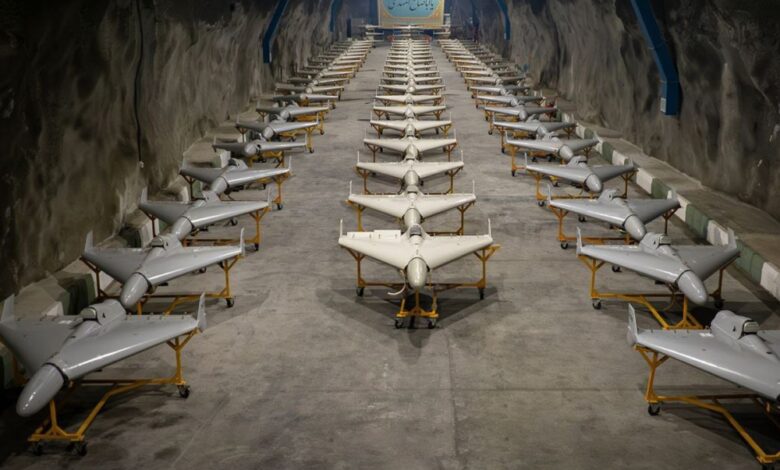
Iranian security forces have arrested more than 300 individuals accused of aiding Israel in its ongoing attacks against the Islamic Republic since Friday.
According to security sources the arrests, which span across multiple provinces, came amid growing domestic operations to uncover what officials describe as a large and organized spy network operating inside the country, reports Al-Jarida daily.
Authorities reportedly discovered a Mossad base located south of Tehran that contained drones, explosives, and advanced weaponry. In addition, dozens of drone assembly and manufacturing workshops were found across Iran. Among the seized weaponry were Israeli-made Spike anti-tank missiles, capable of evading air defenses through internet-based control systems.
The source indicated that many of the arrested suspects were foreign nationals, including Afghans, Uighurs, Chechens, and Tajiks.
Some were Afghan refugees residing legally in Iran, while others are believed to have entered the country illegally via smuggling networks.
These individuals were said to have worked as guards in homes on the outskirts of major Iranian cities—properties whose owners reside abroad. Many of these homes were reportedly converted into facilities for assembling drones and missiles, with some weapons allegedly launched from within these residences.
In a significant escalation, the source said that among the detainees were also Israeli nationals of Iranian origin and individuals carrying forged Arab or European passports. Iranian members of the Mujahedin-e Khalq (MEK), Kurdish militants, and Baloch separatists were also named among those arrested.
The Iranian police confirmed the seizure of drone components and equipment from a workshop on the outskirts of Isfahan, where four individuals allegedly affiliated with Mossad were detained.
In the city of Ray, authorities also discovered a facility used to produce suicide drones and improvised explosive devices. More than 200 kilograms of explosives were confiscated during the operation.
Colonel Hussein Mafi, quoted by Nour News, stated that “a large number of suicide drones, manufacturing equipment, and explosives were seized from a residential home,” alongside Israeli Spike missile launchers. The operation followed a public tip regarding suspicious activities inside a home, highlighting the role of citizen vigilance in exposing such threats.
Iranian authorities have described the developments as part of a broader campaign to confront what they called “an army of foreign agents” operating inside the country.
Amid these security operations, Iran’s judiciary announced the execution by hanging of a man convicted of espionage and intelligence collaboration with Mossad. The man, arrested in 2023, was tried and sentenced under espionage charges, with the execution reportedly marking the beginning of a wider crackdown.
Concurrently, Iranian officials have imposed severe restrictions on access to social media, citing efforts to counter foreign influence. This move coincides with Israeli officials publicly urging Iranians to rise against the ruling regime, leading to a surge in cyber and domestic unrest. Authorities in Isfahan reported the arrest of 60 Iranian nationals for allegedly “inciting public opinion and spreading chaos in cyberspace.”
The recent developments reflect Iran’s heightened state of alert as tensions with Israel escalate into direct conflict, drawing in covert operations and intelligence warfare alongside the ongoing missile exchanges.













